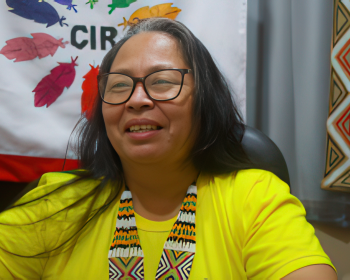By Lygia Zamali Fernandes with Edson Krenak (Krenak, CS Staff)
By Lygia Zamali Fernandes with Edson Krenak (Krenak, CS Staff)
By Bobbie Chew Bigby (Cherokee)
By Lucas Kasosi (Maasai, CS Intern)
By Dev Kumar Sunuwar (Koĩts-Sunuwar, CS Staff)
Keith A. Doxtator (Oneida) is the Director of Finance & Investments for the Ho-Chunk Nation. His professional background has combined financial planning with several impact areas within indigenous communities. This includes working with Tribal investments to build sustainable programs, aligning investments toward each Nation’s culturally significant priorities, leading blood quantum community conversations between mathematical truths and social implications, and providing financial leadership through programmatic and nation-wide Tribal issues. One highlight in the impact investing space is Keith’s and Oneida’s leadership calling attention to the harmful impacts of Native mascots in sports, ultimately leading to a rallying of investor support applying pressure to change away from native mascots, like the Washington NFL team.
Keith has an MS in Financial Services and a BS in Earth/Environmental Sciences. He also serves on the steering committee for the Investors and Indigenous People's Working Group and the Basic Needs Giving Partnership, which targets the root cause of poverty in Northeast Wisconsin, where Keith and his family live.
Cultural Survival's community includes people from all walks of life, with beautiful stories about why they decided to become advocates for Indigenous Peoples' rights. Sharing these stories further connects our community, provides much-needed solidarity and validation to our staff and partners on the ground, and helps us inspire others to join our movement. We are excited to spotlight members and former interns of our community and highlight your contributions and perspectives through our Cultural Survival Spotlight series.

By Phoebe Farris (Powhatan-Pamunkey)
This year’s annual Indigenous Media Conference, which took place August 13-15 in Albuquerque, NM, featured a screening of Hulu's true crime documentary, "Blood & Myth,” followed by a Zoom panel that included Executive Producer/Writer James Dommek Jr. (Iñupiaq) and Producer Jonas Bell Pasht.